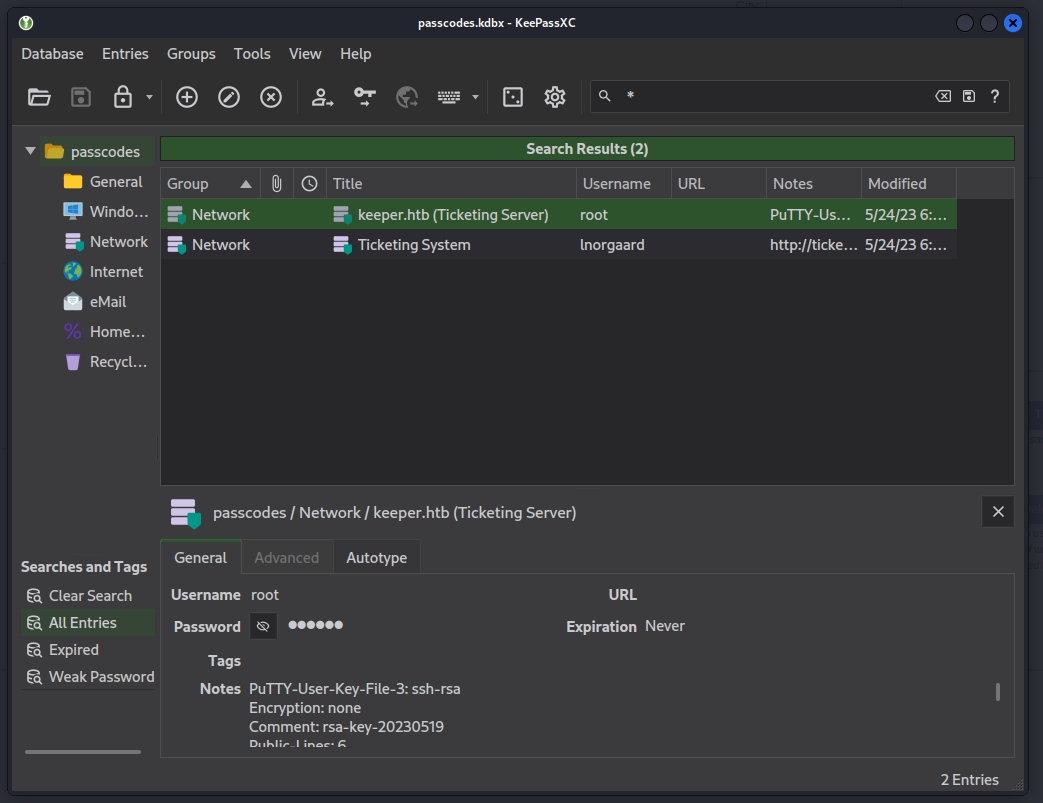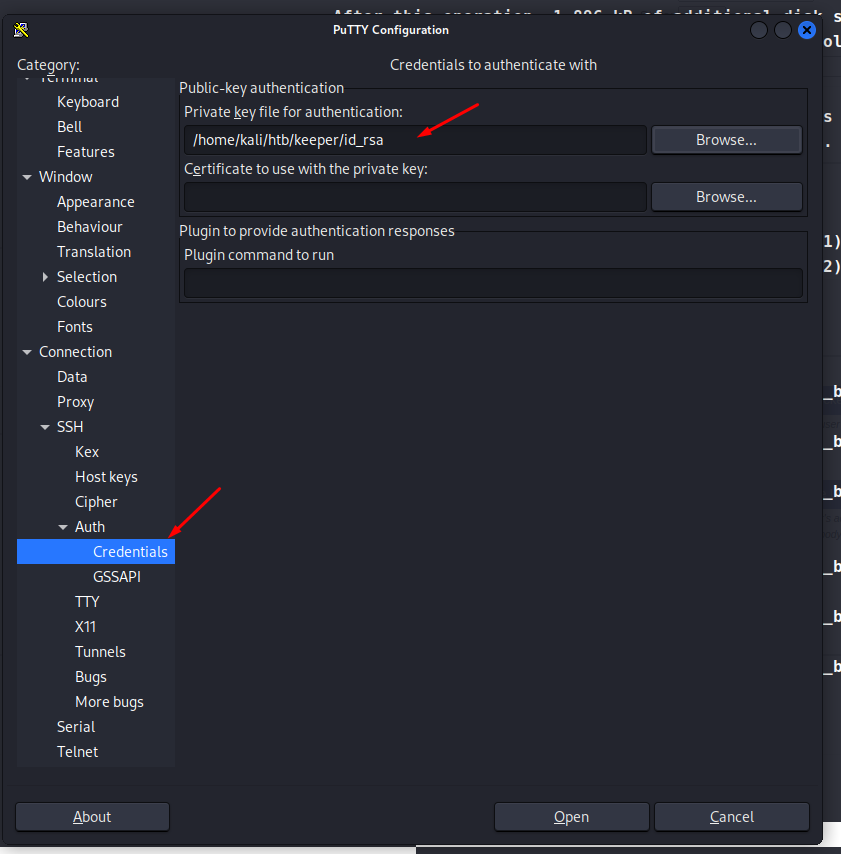Hack the Box - Keeper
Posted on April 29, 2023 • 3 minutes • 589 words
Welcome back! Today we are going to be doing the Hack the Box seasonal machine - Keeper. This machine is listed as a easy Linux machine. So let’s see what’s in store.
As usual, we start with a rustscan of the target. Here are the results:
PORT STATE SERVICE REASON VERSION
22/tcp open ssh syn-ack OpenSSH 8.9p1 Ubuntu 3ubuntu0.3 (Ubuntu Linux; protocol 2.0)
80/tcp open http syn-ack nginx 1.18.0 (Ubuntu)
|_http-title: Site doesn't have a title (text/html).
| http-methods:
|_ Supported Methods: GET HEAD
|_http-server-header: nginx/1.18.0 (Ubuntu)
Service Info: OS: Linux; CPE: cpe:/o:linux:linux_kernel
Not much to see here, let’s take a look at port 80. Right away we see a redirect link pointing to a hostname of tickets.keeper.htb. So, we’ll add both keeper.htb and tickets.keeper.htb to our host file. After we do that, we’ll start a gobuster to enumerate subdomains as well.
Command:
gobuster dns -u http://keeper.htb -w /usr/share/wordlists/seclists/Pick/a/list -t 80
Now while that runs we’ll see whats on tickets.keeper.htb. We land on a login page.

This is a <code>Request Tracker</code> portal
. Using the default username and password of root:password, we are able to log in. Browsing around the portal we are able to obtain some information from the pending ticket. Now we see that there was a crash dump file attached to a ticket, however that file has been removed and placed in the users home directory.

We continue to look through the portal and are able to obtain some additional info about users. We have two users for the system inorgaard and root.

When we click on inorgaard we see a password for initial use set - Welcome2023. Well, I wonder if there’s a password reuse issue here. We try the same password for SSH? Well, sure enough, they do. We are able to login via SSH and obtain the user.txt flag.

Now we can access that crash dump from earlier as well. We can unzip the files and copy them to our local machine for extraction and examination. When we extract the life we get a KeePassDumpFull.dmp. Now if the version of KeePass running is below 2.54, we can extract the master password
from this dump. Maybe there’s a root password or ssh key in there.
First we need to get .NET 7 installed.
Commands:
wget https://packages.microsoft.com/config/debian/12/packages-microsoft-prod.deb -O packages-microsoft-prod.deb
sudo dpkg -i packages-microsoft-prod.deb
rm packages-microsoft-prod.deb
sudo apt-get update && sudo apt-get install -y dotnet-sdk-7.0
Next we pull down our repo.
Commands:
git clone https://github.com/vdohney/keepass-password-dumper
Then we can run the PoC.
Command:
dotnet run ~/htb/keeper/KeePassFullDump.dmp

Awesome! We now have an output with one wildcard in it - ●ødgrød med fløde. Now we can try each of the suggested characters in the wildcard space in order to unlock the database. I actually DDG’d for the password without the wildcard and it came back with this:

It looks delicious! That most likely solved our problem. R is the character we are looking for. Now we can use KeePassxc to load this database.
Command:
sudo apt install keepassxc
keepassxc

Then we select the passcodes.kdbx.

Enter the password we’ve discovered and we’re in!

Now, we see there’s an RSA key used with PuTTY inside, as well as the password to match. In this case, we can simply copy the contents of the file out in to an id_rsa file. Next we can install PuTTY.
Command:
sudo apt install putty
putty
Then we launch putty and add our key file.

Then we hit open and we are in!

We are able to log in as root and get the root.txt flag!

